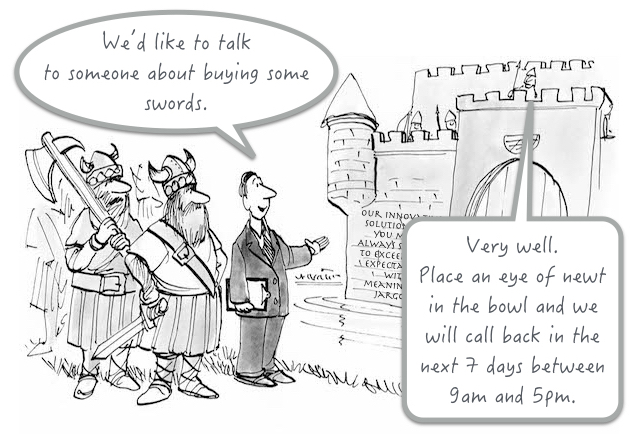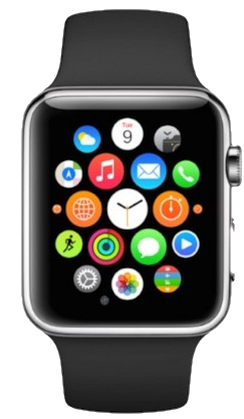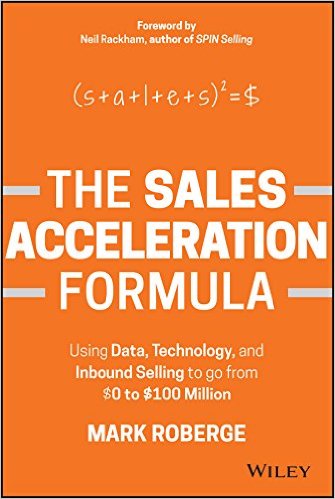When you have a technical background (and a technical mindset) and you have to go on your first sales call, there’s a natural tendency to panic. Some people avoid this by having no idea what they don’t know, so they don’t panic until later, when they realize they’ve screwed up chances to make lots of money and work on interesting things.
While panic is an useful mechanism to remind you to take step back and take a deep breath, it’s not a good response in a sales situation. (Or any other situation, really.)
Of course, that’s easy to say, but panic is sometimes hard to avoid. I was on an early morning flight to meet with a prospect that a partner had arranged. This was a great opportunity, but the partner had been guarded about the details. It sounded like something we could help with, but I wasn’t sure what to expect. The thing I didn’t want to do was fly across the country for nothing (especially on a 6am flight). But the uncertainty was making me nervous.
As I sipped on my coffee, I looked down at my crisp white shirt and made a mental note to not spill coffee on it. As I finished my coffee, I looked down at my shirt. I had somehow spilled not a drop, but an oil spill’s worth all over my formerly clean white shirt.
Panic set in. Then, I took some deep breaths. (This is probably the most important physiological thing you can do.) Surely, I’m not the only klutz who’s spilled coffee on his shirt before a meeting, right? Right?
When I got off the plane, I found one of those overpriced stores that sells clothes to people who spilled coffee on their shirts. I paid the price, which I would never have done under normal circumstances, and went to my meeting.
We were in a big conference room where the table was big enough to have a gap in the middle. Lots of people were there. That was good, in a way, because it meant that this was important. It was also bad, because I’m introverted, and a much prefer a direct discussion with 1-2 people than a presentation with 8-10 people, who I can’t possibly know well.
Fortunately, the prospect had a problem that they wanted to talk about. I was interested in learning about it, and thinking about how to solve it. I thought about a mental trick I developed to help me deal with situations like this. How would I handle this if these people were friend’s of a friend? (Which in a way they were, as they were close with the partner.) How would I act if there was no money involved, someone just wanted some help with something? Suddenly, it doesn’t feel like “sales”. The awkwardness is gone, and I could just try to be helpful.
The day went well, and we ended up with a six-figure deal. And I didn’t spill anything on my shirt on the way home.
Don’t panic. Just be helpful.
(For tips on how to make 3 essential mindset shifts when moving from a tech role into sales, click the big green button in the sidebar.)
 Guest: Joe Williamson, Partner at Alloy Partners, talks about:
Guest: Joe Williamson, Partner at Alloy Partners, talks about:





